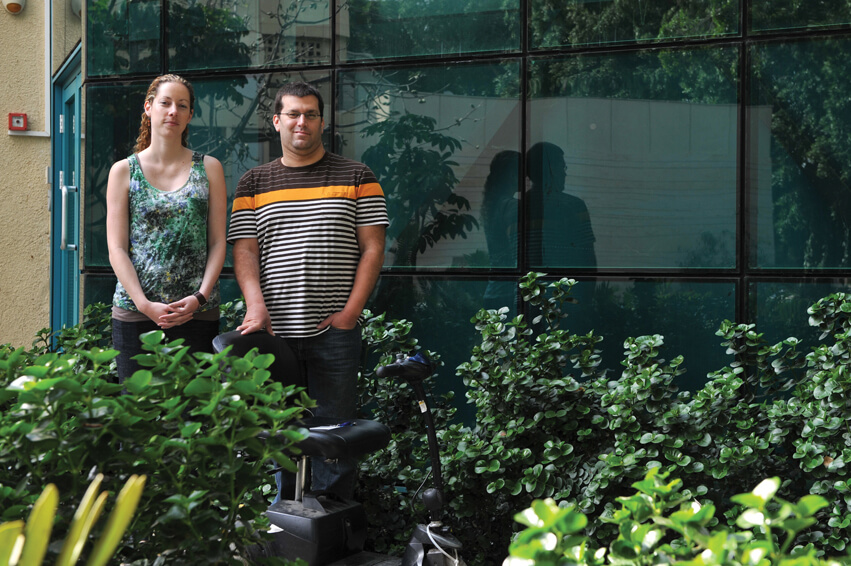A new study by Weizmann Institute of Science scientists, recently published in the scientific journal Nature Neuroscience, suggests that learning in negative conditions leads to less sharp perception than our abilities in other situations

In times of danger, so they say, the senses are sharpened, and the sights and sounds are precisely etched in the memory. But a new study by Weizmann Institute of Science scientists, recently published in the scientific journal Nature Neuroscience, suggests that sometimes the opposite is true: learning in negative conditions leads to less sharp perception than our abilities in other situations. The findings, which point to a logical predisposition that may be rooted in our distant evolutionary past, may help explain why some people develop post-traumatic stress disorder or other anxiety disorders.
To test learning in threatening situations, Dr. Roni Paz and research student Jennifer Resnick, from the Department of Neurobiology at the Weizmann Institute of Science, taught volunteers that certain sounds lead to a disturbing phenomenon (such as, for example, a bad smell), while other sounds lead to a pleasant outcome, or not Accompanied by a result at all. After that, the discrimination ability of the volunteers was tested: to what extent are they able to distinguish between the "good" or "bad" sounds and similar sounds.
In line with expectations based on previous studies, the volunteers' ability to distinguish between sounds in neutral or positive conditions gradually improved during training. On the other hand, the scientists discovered that after the exposure to a negative and disturbing stimulus, the results of the volunteers actually got worse.
The differences demonstrated by the volunteers in the ability to distinguish point, in fact, to fundamental changes in perception. After learning that a certain stimulus is associated with an unpleasant experience, the volunteers were unable to differentiate it from similar stimuli, even though under normal conditions they performed the task successfully. In other words, the volunteers who received "aversive feedback" were unable to distinguish between two similar sounds, regardless of their normal discrimination ability.
Dr. Paz: "These results can be explained in the context of our evolutionary past: if you have heard the growl of a predatory lion in the past, your survival may depend on the fact that every similar noise will sound the same to you, and push the same emotional buttons. In this way, your instincts will tell you to run away immediately, and not wonder if the noise you just heard is indeed the same as the familiar growl from the past."
Dr. Paz believes that this phenomenon may be increased among people suffering from post-traumatic syndrome, and cites the attack on the Twin Towers in New York as an example. Many of the witnesses to the attack on the towers developed post-traumatic syndrome, and for a large part of them, the anxiety is linked to the sight of tall buildings. They know that there is no real similarity between the destroyed towers and the building that "threatens" them now, but the basic, more instinctive perception does not distinguish between the similar tall buildings, and therefore reacts accordingly.
The team of scientists is now investigating this idea in depth. They hope, among other things, to identify the areas of the brain that determine the different levels of perception. Dr. Paz: "We believe that this trick of the brain, which developed in the past to help us overcome threats, today works against us in certain cases. We hope that these studies will be able to help in understanding basic aspects of emotional perception and learning, and perhaps also shed light on anxiety disorders, such as post-traumatic syndrome."

2 תגובות
I have no doubt that the findings are correct and it does happen.. The solution to erasing events from the past that affect us with fear of things that do not pose any threat is simple - auditing
This test works and works great
I have a feeling I've read it before